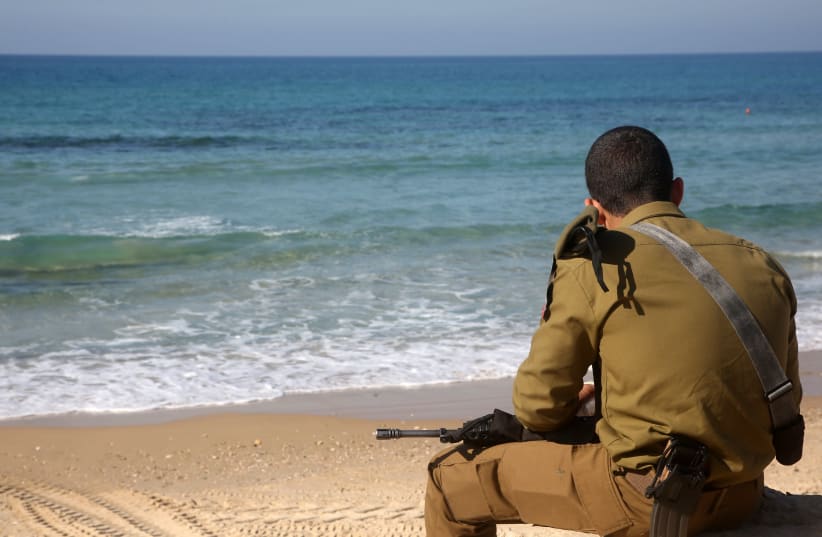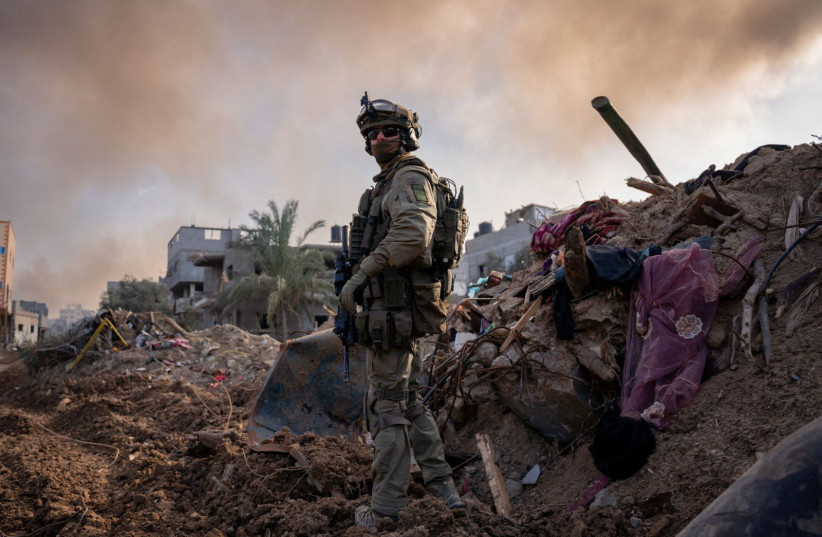An Israel Defense Forces reservist, Eliran Mizrachi of Ma’aleh Adumim, tragically took his own life earlier this month after serving for a long period in Gaza, getting a diagnosis of post-traumatic stress disorder (PTSD), undergoing treatment that was not successfully concluded and being called up prematurely for additional reserve duty. Psychiatrists asserted that he was unfit for additional reserve duty.
He had been called up soon after Hamas’s October 7 incursion into Israel and was told to help collect the bodies of the murder victims at the Supernova music festival. From there, the combat engineer was assigned to fight on a Gaza battlefield for months.
His family, who maintained that he had returned from war as “a broken man," demanded that Mizrahi – married and the father of four – be recognized as a fallen soldier and have a military funeral in a military cemetery. After initially refusing, the IDF finally agreed.
Soldiers with PTSD go back to duty mid-treatment
However, the IDF and the Defense Ministry have not yet learned a lesson from this catastrophic, preventable case. Now, therapists at the National Clinic for Traumatic Stress & Resilience Tel Aviv University (TAU) – the largest PTSD clinic in Israel – warn officially that “some of our patients, deeply committed to their country, unit, and comrades, leave everything behind and go back to reserve duty in the midst of treatment for their PTSD. In this, they risk aggravating their own psychological condition, and since they might not be fully fit for active service, they also endanger their comrades.”
As the war is almost nine months old, clinic professionals reported that some reservists quickly respond to the new summons, quit or delay therapy, and return to service, risking further deterioration of their condition – also endangering their comrades because they might not be fully fit for active service.
The information was presented at TAU’s Annual Convention, “Israel’s Future.”
The clinic was launched soon after the Gaza war broke out. Its professionals receive every week some 40 new requests for treatment from both civilians and soldiers, most of them affected by the war. This massive request for help is unusual even compared to past military campaigns; they said there is evidence of the great emotional distress created by the war with no end in sight.
National Center director Prof. Yair Bar-Haim declared that “since the October 7 attack, the number of PTSD sufferers in need of therapy has grown every month. Often reservists go back home, presumably to their ‘normal lives,’ and it takes them some time to realize that they can’t function normally at work or at home. They also face danger from a troubling phenomenon we recognized recently – that many of our patients are called up again before completing therapy for PTSD from their first round of fighting.”
Being deeply committed to their country, unit, and comrades, some leave everything behind and go back to serve, he continued. “It must be understood that this can worsen their own symptoms, and there is also real concern about their ability to function and make decisions as commanders or squad members on the battlefield. This trend also calls for adapting existing therapeutic protocols – generally addressing past traumas that have generated a psychological disorder but most probably will not happen again. The unique situation of returning to the context of the trauma and risking exposure to more trauma has rarely been discussed in the professional literature. Today, this is happening in two places – Israel and Ukraine – as a result of protracted wars.”
Israel’s mental healthcare system is experiencing a deep crisis, Bar-Haim continued. “I call upon decision-makers to act now and develop long-term solutions that look beyond the horizon to the next two decades at least; solutions that will upgrade and accelerate training processes for future therapists and establish strong regional clinics specializing in trauma and PTSD.
In the immediate term, he concluded, “We must raise the awareness of soldiers, commanders, and civilians about PTSD symptoms, and soldiers and reservists already receiving such therapy should be exempt from additional military service until the therapeutic process has been completed and the patient is once again psychologically competent.”

